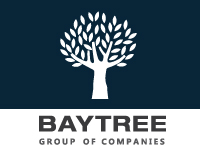CA
ON
럭키 여행사
전화: 416-938-8323
4699 keele st.suite 218 toronto Ontario M3J 2N8 toronto, ON

K-포차 ...미시사가(만두향프라자)
전화: 905-824-2141
169 DUNDAS ST. E. #7 Mississauga, ON

조준상 (로열르페이지 한인부동산 대표)
전화: 416-449-7600
1993 Leslie St. Toronto, ON

준비된 바이어 그룹 , BAYTREE 이너써클
전화: 416-226-5999
7030 Woodbine Ave. Suite 103 Toronto, ON

싸인건설
전화: 416-909-7070
4065 Chesswood Dr. North York, ON
0.jfif)
행복부동산 -수잔정 Home Standards Brickstone Real
전화: 647-866-7878
180 Steeles Ave W Unit 30, Thornhill, ON

대형스크린,LED싸인 & 간판 - 대신전광판
전화: 416-909-7070
4065 Chesswood Drive Toronto, ON

럭키조경 & 나무자르기
전화: 647-564-8383
4699 Keele St. Unit 218 Toronto, ON

토론토 기쁨이 충만한 교회
전화: 416-663-9191
1100 Petrolia Rd Toronto, ON

최고의 POS시스템 - 스마트 디지탈 POS
전화: 416-909-7070
4065 CHESSWOOD DR. NORTH YORK Toronto, ON
0.jfif)
1004열쇠
전화: 416-895-1004
4 Blakeley Rd. Toronto, ON

스마트 디지탈 프린팅 - 인쇄 및 디자인
전화: 416-909-7070
4065 chesswood dr. Toronto, ON
.jfif)
It would be a place where all the visitors including me share the life stories and experiences through their activities,especially on life as a immigrant.
Why don't you visit my personal blog:
www.lifemeansgo.blogspot.com
Many thanks.
블로그 ( 오늘 방문자 수: 131 전체: 267,550 )
탈리반과의 담판은 바람직한가?(인질석방에 즈음하여)
lakepurity
2007-09-02
Talks with the Taliban not out of the question.
테러분자들과의 협상은 과연 옳은 방법이냐? 아니냐?를 결론짖는것은 무척 힘들어 보인다. 각자의 나라의 이익을 위해서 보는 각도가 다르기 때문이다. 이번 한국인들의 아프칸 탈리반들의 인질극에서 풀려난 사건을 계기로 각국은 제각기 의견이 다른것 같다.
특히, 미국을 비롯하여,아프칸에 평화군을 파견한 서방 37개국은 이번 한국의 탈리반 테러분자들과의 협상을 크게 우려하는것 같다.
테러분자들의 지위를 인정해주는, 또 다른 한편으로는 동맹국과의 협조및유대를 깨버린 Betray 적인 행동을 한국은 했기 때문인것 같다.
캐나다 정부의 입장은 테러분자들과의 협상은 절대 용납이 안된다고 으름장이고, 토론토스타의 입장은 일단은 어떤수를 쓰든지간에 인명피해를 줄이는즉면에서 볼때, 상대가 누구이든 협상을 통해 해결될수 있다면, 이를 수용해야 한다는 입장인것 같다. 아무튼 복잡한 세상임에는 틀림없다.
아래 토론토 스타지의 9월2일,2007년 기사를 참조 해보자.
Militants control half of key area near Kandahar
Over the past six weeks, the Taliban has driven government forces out of about half of a strategic area in southern Afghanistan that NATO officials declared a success story last fall in a campaign to clear out insurgents and make way for development programs, Afghan officials say.
Sep 02, 2007 04:30 AM
Thomas Walkom
The hostage agreement reached last week between the Taliban and South Korea has profound implications for all countries fighting in Afghanistan. It puts the lie to those, including the current Canadian government, who say it is impossible or counterproductive to strike a deal with the Islamist insurgents. Clearly South Korea found the talks quite productive.
On the surface, the deal appeared to deny the Taliban anything substantive. The insurgents released 19 South Korean missionaries they were holding hostage. In return, South Korea reiterated a previous commitment to withdraw its 200 troops from Afghanistan.
Seoul also agreed to bar any more of its missionaries from travelling to Afghanistan. But it had already done that too.
There are rumours that South Korea paid an under-the-table ransom. Yet even if true, that would be relatively immaterial. The real gain for the Taliban was that it forced a NATO-allied country not only to negotiate but to publicly acknowledge those negotiations.
This provided the insurgents with a patina of legitimacy they have lacked since being driven from power in 2001. By doing the deal, Seoul pointedly ignored the objections of President Hamid Karzai's government, nominally the sovereign authority in the country. In the end, flanked by their Korean counterparts, Taliban officials even staged a press conference.
For a movement routinely branded as medieval, it was public relations and diplomatic coup. Lost in the euphoria of the hostages' release was the fact that the insurgents had already cruelly murdered two of the missionaries.
But this too was secondary to the main message. That message – delivered to citizens of all of the 37 nations with troops in Afghanistan – is that the Taliban are willing to talk. They may be harsh in religion and brutal in their methods. But in the end, they are willing to sit down and hammer out deals.
No wonder that governments determined to prosecute the Afghan war are so spooked. Washington decried the negotiations. So did Canada.
"The Canadian position on dealing with terrorists is well-known to all those with even a passing familiarity with the subject," Foreign Affairs Minister Maxime Bernier announced. "We do not negotiate with terrorists for any reason."
Leaving aside the question as to whether Taliban insurgents are guerrillas, terrorists or both, Bernier's statement is quite simply incorrect. Canada has negotiated with terrorists – most notably in 1970, when the federal government allowed Front de libération du Québec hostage-takers to fly to Cuba in exchange for the British diplomat they were holding.
And if a similar situation were to arise in the future, Ottawa would almost certainly do the same. This is not because Canada is uniquely pusillanimous. Most countries end up negotiating with enemies they cannot defeat. Israel routinely negotiates hostage swaps with groups it calls terrorist. Britain brought an end to the Irish troubles when it talked to the hard men of the Irish Republican Army. Such is the way of the world.
Bernier warns that deals such as last week's can only lead to "further acts of terrorism." If he means the insurgents will be encouraged to take more foreigners hostage, he is probably correct. But the fact that the Taliban is now back in play diplomatically may also lead to more diplomacy, which is not such a bad thing. As Winston Churchill famously said of the Korean War: "To jaw-jaw is always better than to war-war."